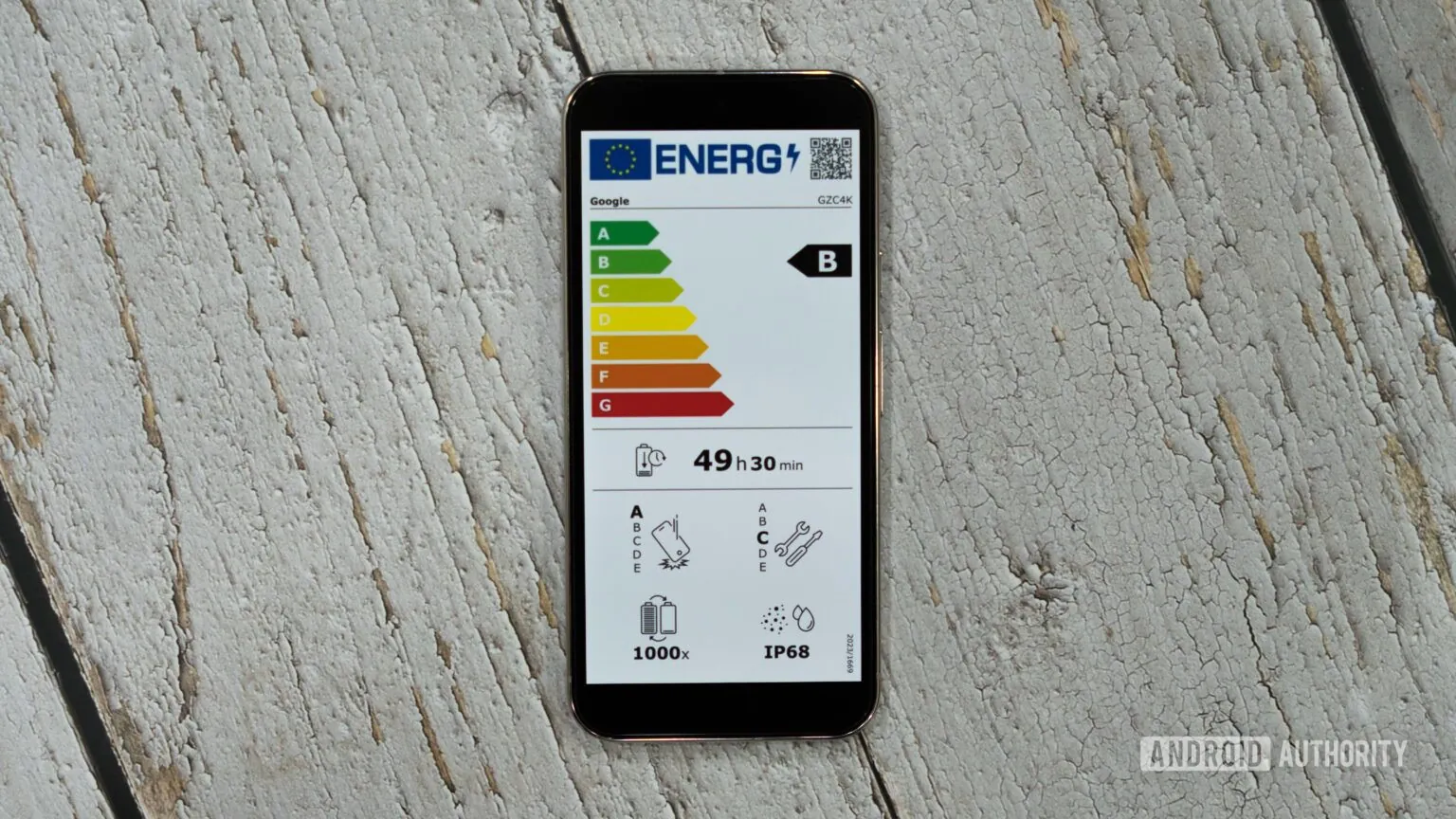Microsoft axe another 9000 in continued AI push
-
Microsoft has confirmed it is to axe another 9000 with its continued push into AI. I just find it incredible because for me AI is NOT the answer in any way shape or form.....

Microsoft to cut up to 9,000 jobs as it invests in AI
The US tech giant will axe 4% of its global workforce and plough money into artificial intelligence.

BBC News (www.bbc.co.uk)
Weird. The cuts apparently include cancellation of several games that were planned and many of them will hit the Xbox division.
I would've thought that the increased productivity that Copilot theoretically gives developers would have resulted in the reduced staff still being able to finish those games.
-
Weird. The cuts apparently include cancellation of several games that were planned and many of them will hit the Xbox division.
I would've thought that the increased productivity that Copilot theoretically gives developers would have resulted in the reduced staff still being able to finish those games.
Yeah, from that perspective this reads roughly like when the Zoom CEO started forcing his own people back into the office. Basically tells the market that your company has no real faith in the claims it makes about its products.
-
Microsoft has confirmed it is to axe another 9000 with its continued push into AI. I just find it incredible because for me AI is NOT the answer in any way shape or form.....

Microsoft to cut up to 9,000 jobs as it invests in AI
The US tech giant will axe 4% of its global workforce and plough money into artificial intelligence.

BBC News (www.bbc.co.uk)
I know at Lemmy we usually don't read the article title and sure as hell won't read the actual article, so I'll just post this here for everyone: nowhere in the article does it say they are laying people off because of AI. It merely states 9000 people will be laid off, and separately MSFT has invested a lot in AI.
A better reframe: huge tech company shifts focus.
-
Microsoft has confirmed it is to axe another 9000 with its continued push into AI. I just find it incredible because for me AI is NOT the answer in any way shape or form.....

Microsoft to cut up to 9,000 jobs as it invests in AI
The US tech giant will axe 4% of its global workforce and plough money into artificial intelligence.

BBC News (www.bbc.co.uk)
Hopefully this fosters a bunch of new software from these developers if hired at other companies or working freelance/solo/whatever.
-
Yeah, from that perspective this reads roughly like when the Zoom CEO started forcing his own people back into the office. Basically tells the market that your company has no real faith in the claims it makes about its products.
The thing is, if they just pared those claims down a bit, they'd be accurate. Switch from "Copilot can build an entire application for you from scratch while giving you a blowjob" to "Copilot can help developers by automating some repetitive and time-consuming tasks," and you still have a good thing.
-
I know at Lemmy we usually don't read the article title and sure as hell won't read the actual article, so I'll just post this here for everyone: nowhere in the article does it say they are laying people off because of AI. It merely states 9000 people will be laid off, and separately MSFT has invested a lot in AI.
A better reframe: huge tech company shifts focus.
I get that, but there are other articles saying the same if not pushing it worse...
My point is they are investing large amounts in AI and not people, refocus if you like but for many people AI isn't what they want. Mind you neither is office or Windows.... -
I get that, but there are other articles saying the same if not pushing it worse...
My point is they are investing large amounts in AI and not people, refocus if you like but for many people AI isn't what they want. Mind you neither is office or Windows....Don't they lay this amount off every year?
Their workforce is upwards of 200,000. During COVID it was only 100,000. 2006 it was 60,000. But they lay off 9000 and it's because of AI?
Why is this AI and not just business as usual?
I've been saying for a bit that these AI headlines in Lemmy are similar to anti immigrant headlines in Republican social media groups. I feel like this is just more evidence of it. It's yellow journalism tactics
-
Microsoft has confirmed it is to axe another 9000 with its continued push into AI. I just find it incredible because for me AI is NOT the answer in any way shape or form.....

Microsoft to cut up to 9,000 jobs as it invests in AI
The US tech giant will axe 4% of its global workforce and plough money into artificial intelligence.

BBC News (www.bbc.co.uk)
My favorite thing about Microsoft is that there's no longer anyone who works there that understands the windows compiling process and internal tools. Everything is built on top of the previous version of windows going back decades.
-
Don't they lay this amount off every year?
Their workforce is upwards of 200,000. During COVID it was only 100,000. 2006 it was 60,000. But they lay off 9000 and it's because of AI?
Why is this AI and not just business as usual?
I've been saying for a bit that these AI headlines in Lemmy are similar to anti immigrant headlines in Republican social media groups. I feel like this is just more evidence of it. It's yellow journalism tactics
Because a lot of the jobs are simply going as they have replaced people with AI. Here in the UK I know about 25000 jobs gone this year with businesses I've worked for as they are replaced with AI. Of course, I have about 90% less work this year as well because of AI
-
Hopefully this fosters a bunch of new software from these developers if hired at other companies or working freelance/solo/whatever.
Not in my experience, jobs are just being lost to AI overall, as in the are simply replaced by AI. Here in the UK had whole departments replaced by AI like copywriters and summarising jobs
-
Don't they lay this amount off every year?
Their workforce is upwards of 200,000. During COVID it was only 100,000. 2006 it was 60,000. But they lay off 9000 and it's because of AI?
Why is this AI and not just business as usual?
I've been saying for a bit that these AI headlines in Lemmy are similar to anti immigrant headlines in Republican social media groups. I feel like this is just more evidence of it. It's yellow journalism tactics
Another factor is Section 174 and the hiring of H1B workers. Although Microsoft's official AI website lists many job openings, you're right that it's changing its focus, it's strange that they're changing focus so quickly. First it was the metaverse, then video games, and now it's AI. What's next? Quantum computing in the coming years, and pouring tons of money into it as if there were no tomorrow.
It seems like tech companies are going through a midlife crisis, as are their shareholders, who want to be on the cutting edge and end up executing poorly. But they want to be on this trend because they don't want to be in the same situation as Apple, which wasn't on the cutting edge and its shareholders are suing it.
-
The thing is, if they just pared those claims down a bit, they'd be accurate. Switch from "Copilot can build an entire application for you from scratch while giving you a blowjob" to "Copilot can help developers by automating some repetitive and time-consuming tasks," and you still have a good thing.
If they marketed on the actual capability, customer executives won't be as eager to open their wallet. Get them thinking they can reduce headcount and they'll fall over themselves. You tell them your staff will remain about the same but some facets of their job will be easier, and they are less likely to recognize the value.
-
I thought the new tax cuts for billionaires were going to create more jobs…
With all the deportations of illegal immigrants there will be tons of open jobs (that pay next to nothing).
-
Another factor is Section 174 and the hiring of H1B workers. Although Microsoft's official AI website lists many job openings, you're right that it's changing its focus, it's strange that they're changing focus so quickly. First it was the metaverse, then video games, and now it's AI. What's next? Quantum computing in the coming years, and pouring tons of money into it as if there were no tomorrow.
It seems like tech companies are going through a midlife crisis, as are their shareholders, who want to be on the cutting edge and end up executing poorly. But they want to be on this trend because they don't want to be in the same situation as Apple, which wasn't on the cutting edge and its shareholders are suing it.
Apple is being sued because they announced and demonstrated all of these AI features and then never delivered. They are actually doing good work in the AI field, including a recent paper that demonstrates that AI/LLM technology is incapable of reasoning, and any apparent logic seen in current approaches is simply an illusion. It’s not that they “aren’t moving fast enough”, it’s that they intentionally lied about their capabilities and timelines.
-
Microsoft has confirmed it is to axe another 9000 with its continued push into AI. I just find it incredible because for me AI is NOT the answer in any way shape or form.....

Microsoft to cut up to 9,000 jobs as it invests in AI
The US tech giant will axe 4% of its global workforce and plough money into artificial intelligence.

BBC News (www.bbc.co.uk)
AI might be a convenient excuse but it is my understanding this all relates to a change in US tax code that no longer allows a company to write off research and development.
-
Microsoft has confirmed it is to axe another 9000 with its continued push into AI. I just find it incredible because for me AI is NOT the answer in any way shape or form.....

Microsoft to cut up to 9,000 jobs as it invests in AI
The US tech giant will axe 4% of its global workforce and plough money into artificial intelligence.

BBC News (www.bbc.co.uk)
I often wonder these days why anyone would have any interest in working for the likes of Microsoft or the other big names. Unless I am just severely underestimating how good that comp package is it seems like knowing you will get the ax within 5 years of your start date more than likely would really dump cold water on the whole affair.
-
Don't they lay this amount off every year?
Their workforce is upwards of 200,000. During COVID it was only 100,000. 2006 it was 60,000. But they lay off 9000 and it's because of AI?
Why is this AI and not just business as usual?
I've been saying for a bit that these AI headlines in Lemmy are similar to anti immigrant headlines in Republican social media groups. I feel like this is just more evidence of it. It's yellow journalism tactics
Exactly. Everyone likes to blame AI right now, but the actual reality is that everything has been getting more automated, centralized, efficient, etc. What used to be an entire office of people using typewriters and paper and pens and file cabinets is now a single SQL database with some code doing analysis and reports. What used to be an entire team of programmers and analysts can now be a handful of people using AI and pre built templates or software. AI is just the next evolution of an already existing story of evolving industries. Similarly 1 farmer in an ACed tractor can now sow and reap entire fields of food that used to be hundreds of people for days in the hot sun.
We don't need to be afraid of the technology, but we also don't want to move so fast that we lay off thousands of people all at once and they have no other job to go to.
We COULD, in theory demand that every worker that gets replaced by AI and laid off or fired in any way gets a retirement or UBI or something. Some small cut of their former paycheck, but we all know what is about to happen, the few executives at the top are going to fire more and more people and automate more and more things and collect all of the profits and wealth for themselves and leave the rest of us to starve. But that's what the Republicans want, it's the "pull yourself up by the bootstraps" party, which in practice just means screw you, I got lucky and got mine.
The only good thing about AI is that, in theory, anyone could train up their own ML system and profit off what it does. That does give the command person the potential to enter industries they didn't before. Similar to the movable type printing press suddenly opening the way for more people to publish a book. Or the Internet opening the way for me to talk to you where we couldn't have like this 40 years ago.
All of that to say, in a long way, we create more and better technology and tools as a species, it's what we do. We need to embrace that, but also be mindful of what we are creating and for what purposes. Splitting the atom can provide power to entire cities or destroy them. So too could AI provide something good for mankind, but could also destroy.
-
I often wonder these days why anyone would have any interest in working for the likes of Microsoft or the other big names. Unless I am just severely underestimating how good that comp package is it seems like knowing you will get the ax within 5 years of your start date more than likely would really dump cold water on the whole affair.
I work at big tech (not MS) and yes, the comp package really is that good, though not as good as it used to be. I immediately doubled my total comp when I came here from my last job, and now it's ~5x. I could retire right now if I wanted, so I don't care about layoffs anymore.
-
I know at Lemmy we usually don't read the article title and sure as hell won't read the actual article, so I'll just post this here for everyone: nowhere in the article does it say they are laying people off because of AI. It merely states 9000 people will be laid off, and separately MSFT has invested a lot in AI.
A better reframe: huge tech company shifts focus.
This is cover for the fact that they have zero planning and over hired during covid. And now with the tariffs and impending economic downturn, they are nodding and winning that this is because of AI and not that the management teams are terrible at the things they are responsible for (forecasting and budgeting).
-
I often wonder these days why anyone would have any interest in working for the likes of Microsoft or the other big names. Unless I am just severely underestimating how good that comp package is it seems like knowing you will get the ax within 5 years of your start date more than likely would really dump cold water on the whole affair.
Yeah my friend is dating a Google recruiter and he overhears some absurd offers. Like, a reasonable person could retire on a few years at that salary.
I have a hypothesis that rich people are bad at money
-
Social media influencer Andrew Tate sues Meta, TikTok for over $50 million for ‘deplatforming’ him
Technology 1
1
-
-
-
Samsung phones can survive twice as many charges as Pixel and iPhone, according to EU data
Technology 1
1
-
Tech firms suggested placing trackers under offenders’ skin at meeting with UK justice secretary
Technology 1
1
-
-
-


